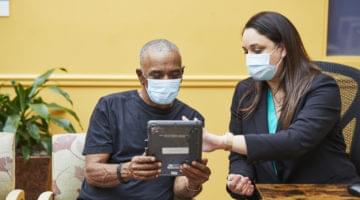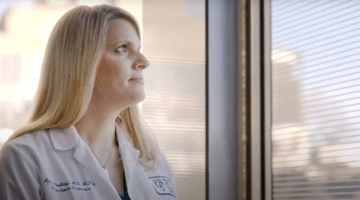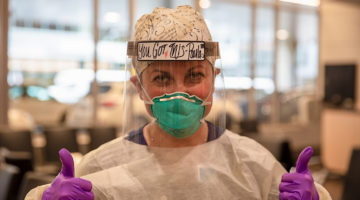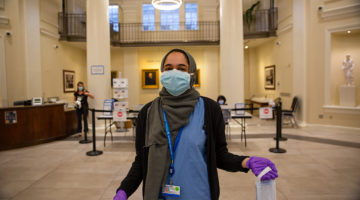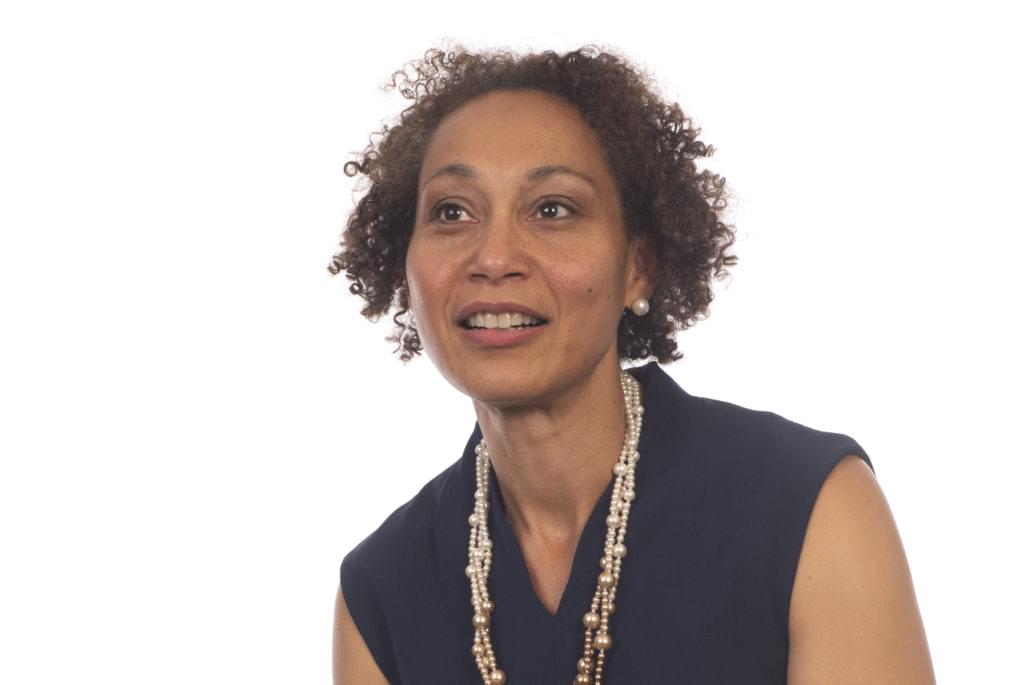
Kessler Director of the Center for Surgery and Public Health
Department of Surgery, Brigham and Women’s Hospital
Associate Professor of Surgery, Harvard Medical School
(Photo by Stu Rosner)
What prompted you to go into medicine?
I was working in advertising and volunteering for an organization raising funds for ALS research. I interviewed a neurologist researcher for a story on our website, and the way he talked about his patients was so compelling. When I told my dad, who’s an immigrant, that I wanted to be a doctor, he couldn’t believe it. He said, “What are you doing? You have a good job! Can’t you just go volunteer in a soup kitchen?”
How did you get interested in trauma surgery?
I’ve always been interested in public health, and I have combined degrees in medicine and community medicine. During my residency, I got to see how trauma intersects surgery and public health and discovered I love taking care of patients and families when they’re at their most vulnerable. Initially, I was surprised to find myself interested in trauma surgery. Then I saw how trauma surgeons manage the overall care of patients with injuries to multiple organs and body systems, so that put me in the middle of work—and people—I care deeply about.
Does mental health intersect with your work?
There’s a lot of overlap between trauma and mental health. Like many of our colleagues, we are seeing the devastating brunt of the opioid epidemic. So many of our patients are injured by drunk driving, assault, or they themselves have significant mental health issues. At any given time, I would say a third of the patients on our trauma service have major mental health issues. And there are probably many more with underlying mental health issues.
If you always put patients at the center of everything, you will always do the right thing.
What is a typical knowledge gap about your work?
One is that palliative care is all about death and end-of-life care. Palliative care is a medical specialty focused on quality of life as defined by the patient and their family at any phase of illness. What are the patient’s priorities and values? How do they define their quality of life? What outcomes are most meaningful to them? All these questions are more acute near end of life because every decision comes with trade-offs. Also, my work has a built-in knowledge gap: I’m an expert at surgery, but you’re an expert on you. If I’m going to operate on you, I need to know about you to do the best surgery for you. That’s palliative care, and we should be integrating it into how we deliver all care.
What is the most disruptive part of your work?
Probably teaching residents, fellows, and my colleagues about end-of-life and serious illness conversations. A lot of my work looks at outcomes to inform prognosis and priorities. If you think you’re going to live 10 more years, your priorities might be different than if there’s a 50-50 chance you may not leave the hospital. This helps me remember that surgery is not the answer all the time, even when it might be lifesaving. For surgeons, this is especially disruptive because it’s not how our healthcare system is set up. But I’ve found if you always put patients at the center of everything, you will always do the right thing.
What keeps you up at night?
Worrying that my decisions didn’t center on the patient. When I see patients and families struggling to make decisions. Maybe the family is pushing for something, but nobody knows what the patient wants. That uncertainty keeps me up at night and drives a lot of my research.
Who are some of your cultural or medical heroes?
My cultural hero right now is Megan Rapinoe! My medical hero is my colleague [Dr.] Tom Clancy. He’s a hepatobiliary surgeon here who treats pancreatic cancer. When I was a senior resident and he was a young faculty member, we did an 11-hour case together. The tumor was on a major blood vessel, and we spent five or six hours chipping away at it. A lot of people would’ve given up, and he didn’t. I learned so much from that one case about perseverance, integrity, technical skill, and the relationship a physician can have with their patient. Everybody in the world needs to have somebody like that in their corner.




